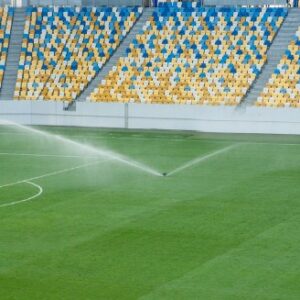Prioritise Legionella Education
In the sports sector, the safety and well-being of athletes, staff, and visitors are of utmost importance. While the focus is often on physical fitness and performance, it is crucial not to overlook the potential health risks that lurk within facilities. Legionnaires disease, caused by the Legionella bacteria, poses a significant threat that demands immediate action. To mitigate this risk effectively, Legionella education and training must be prioritized.
By emphasizing awareness of Legionella risks, proper hygiene practices, and appropriate response protocols, the sports sector can ensure the safety and well-being of everyone involved. Legionnaires disease is a real and significant threat that demands immediate attention. ⚠️ By prioritizing staff education and training, the sports sector can effectively combat this risk. The actions taken by trained and competent staff members can save lives, making a profound impact on the safety and well-being of athletes, employees, and visitors.
With the right training programs in place, organizations can simplify the process of preventing Legionella, ensuring compliance, and creating a safer environment. Partnering with trusted training providers like Dantek can provide the knowledge and skills necessary to protect against Legionnaires disease and its potential consequences. Remember, the actions you take can make all the difference.
Legionnaires Disease: A Real Threat
Legionnaires disease is a severe form of pneumonia caused by inhaling Legionella bacteria-contaminated water droplets. The consequences of an outbreak can be devastating, resulting in severe illness, hospitalizations, and, in some cases, fatalities. Acknowledging the gravity of this threat is the first step towards taking effective action.
Actions Save Lives
The importance of education and training cannot be overstated when it comes to Legionella prevention. By equipping staff with the knowledge and skills to identify and mitigate risks, organizations can save lives. Training programs offer practical guidance on implementing preventative measures, maintaining hygiene practices, and implementing appropriate response protocols. The actions taken by educated and competent staff members are vital in preventing the spread of Legionella and safeguarding the health of athletes, employees, and visitors.
Simplicity and Affordability of Action
Taking action to prevent Legionnaires disease does not have to be difficult, onerous, or expensive. With the right training and education programs in place, organizations can streamline their efforts while ensuring compliance with legislation and best practices. By investing in staff education and training, sports facilities can proactively address Legionella risks, creating a safer environment for everyone involved.
Dantek: Your Legionella Training Partner
 At Dantek, we understand the importance of staff education and training in the sports sector. We offer a comprehensive range of training programs tailored to the specific needs of the industry. Our offerings include basic Legionella e-learning, classroom-closed system water treatment training, cooling tower operative training, Legionella awareness, and responsible person training. With Dantek, you can rest assured that you and your staff are well-equipped to address Legionella risks and ensure a safe environment for all.
At Dantek, we understand the importance of staff education and training in the sports sector. We offer a comprehensive range of training programs tailored to the specific needs of the industry. Our offerings include basic Legionella e-learning, classroom-closed system water treatment training, cooling tower operative training, Legionella awareness, and responsible person training. With Dantek, you can rest assured that you and your staff are well-equipped to address Legionella risks and ensure a safe environment for all.
Contact us today to learn more about our comprehensive Legionella training programs and how we can help you prioritize staff education and ensure a safe environment in the sports sector. Call 01454 417 920 https://www.dantekenvironmental.co.uk/contact-us/ or e mail sales@dantek.co.uk

 In the world of sports, maintaining pristine playing conditions is of utmost importance. From football and cricket to golf and tennis, the quality of the pitch can greatly impact the performance and safety of athletes. One essential component in maintaining these optimal conditions is the irrigation systems. However, it is crucial to recognize that irrigation systems can also pose potential health risks if not properly managed, specifically when it comes to Legionella contamination.
In the world of sports, maintaining pristine playing conditions is of utmost importance. From football and cricket to golf and tennis, the quality of the pitch can greatly impact the performance and safety of athletes. One essential component in maintaining these optimal conditions is the irrigation systems. However, it is crucial to recognize that irrigation systems can also pose potential health risks if not properly managed, specifically when it comes to Legionella contamination.